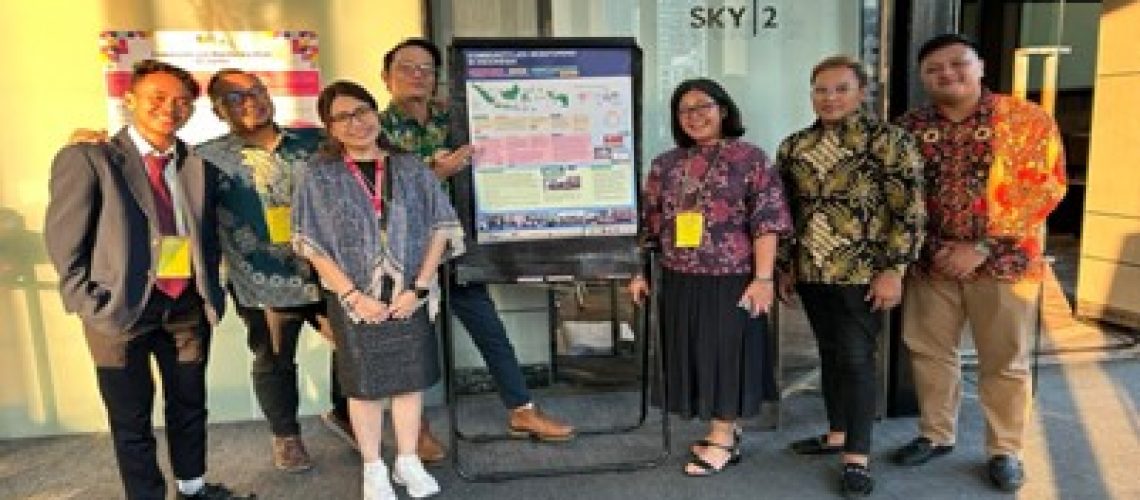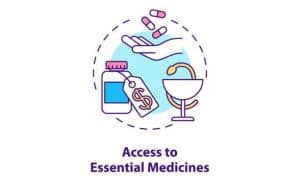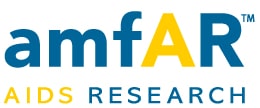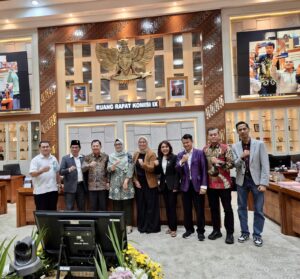Community-led Monitoring (CLM), also known as community-based monitoring, has been proven to improve outcomes for HIV programs and health in general, for PLHIV and key populations. The 2021-2026 global AIDS strategy prioritizes providing support for community-led responses, including CLM. The hope is that the various data and information collected through CLM can be used to ensure that programs run according to the needs of PLHIV and key populations. Strategi AIDS global 2021-2026 memprioritaskan pemberian dukungan terhadap respons yang dimpimpin oleh komunitas, termasuk CLM. The hope is that the various data and information collected through CLM can be used to ensure that programs run according to the needs of PLHIV and key populations.
Currently, CLM is seen as an important tool for the HIV response in the Asia-Pacific Region. There have been various CLM initiatives both nationally and regionally, led and implemented by Community Based Organizations (CBO) and national networks of key populations. CLM places communities at the forefront of the HIV response, empowering them and giving them a critical role in the process of planning and monitoring HIV services. However, despite various good initiatives, there are also several challenges, which include but are not limited to, encouraging consistent acceptance of CLM principles by relevant stakeholders, scaling up CLM pilot projects, and managing conflicts of interest. . Also included in the challenges is the mismatch between the aspirations of the implementing party and the available resources.
At the regional level, the Regional Network of PLHIV and Key Populations has formed a regional CLM consortium, namely the Seven Alliance, which functions as a coordinating body to encourage effective community involvement in monitoring HIV services. The Seven Alliance Consortium consists of APCOM, Asia Pacific Network of People Living with HIV/AIDS (APN+), Asia Pacific Network of Sex Workers (APNSW), Asia Pacific Transgender Network (APTN), International Community of Women Living with HIV in Asia Pacific (ICW-AP), Network of Asian People who Use Drugs (NAPUD), and Youth LEAD.
Responding to the momentum and needs in the region, Seven Alliance, in collaboration with the UNAIDS Regional Support Team for the Asia and Pacific Region (UNAIDS RST AP) organized the 2nd CLM Regional Workshop. The workshop was funded by the Center for Disease Control and Prevention (CDC), through a cooperative agreement with UNAIDS, with additional support from the Global Fund through the multi-country grant SKPA-2 and from other stakeholders.
The overall objective of this workshop activity is to provide space for CLM implementers, CSOs, regional networks, government agencies, donors, UN agencies, as well as technical assistance providers to share knowledge, experience, and tools, which is expected to help harmonize, strengthening, scaling up projects, and maintaining CLM sustainability in the region.
This workshop was facilitated by CLM experts, as well as experts from the Seven Alliance and UNAIDS RST AP. This workshop was facilitated by CLM experts, as well as experts from the Seven Alliance and UNAIDS RST AP. The methods used are interactive, such as poster presentations, case analysis, panel discussions, marketplace of ideas, and plenary discussions. It is hoped that this will encourage discussion and create opportunities for interaction between the Key Population Regional Network, CSOs, representatives of government institutions, and development partners. Furthermore, the workshop also provided a platform for cross-learning regarding CLM implementation, through sharing good practices, CLM supporting factors (enablers), sustainability mechanisms, and learning. In addition, this workshop is also dedicated to strengthening community-led organizational and networking skills to take a more leadership role in all stages of CLM namely from the planning stage to monitoring and evaluation. Finally, this workshop was a moment to evaluate the status of CLM in the region and enable countries to develop plans for scaling up CLM, which also facilitated the development of regional action plans.
As for Indonesia, the action plan prepared includes:
• Community leadership:
- ? Strengthening the CLM-INA Task Force.
• Data Collection and Analysis:
- ? Integrating CLM into the national M&E system, including seeking recognition of CLM data as a data source in the National Strategic Plan for HIV Management 2025-2026.
- ? Strengthening data management systems in communities and using data for advocacy efforts.
- ? Finalization of the CLM tools knowledge management platform.
- ? Finalization of the CLM knowledge management platform.
• Advocacy:
- ? Building an advocacy monitoring mechanism (impact evaluation), including establishing a strategy to utilize available coordination platforms to communicate CLM efforts such as the National Policy Dialogue, District Task Force, and District Policy Dialogue.
• TA Needs and Capacity Building:
- ? Assessment of local resources for CLM implementation.
- ? Providing technical assistance from CLM Champion to CLM implementers at the local level to encourage the expansion of CLM, including the integration of CLM in various activities such as outreach to key populations and providing peer support.
• Domestic Coordination:
- ? Strengthen feedback mechanisms at all levels, including health facilities, district, and national.
• Sustainability:
- ? Encourage demand-creation efforts to increase public awareness of the benefits of CLM and channel this input to stakeholders.
- ? Provide regular reports in connection with impact evaluations to highlight the benefits of CLM.
- ? Encourage CSOs to explore alternative funding sources for project sustainability, such as CSR, crowdfunding, domestic funding, etc.








